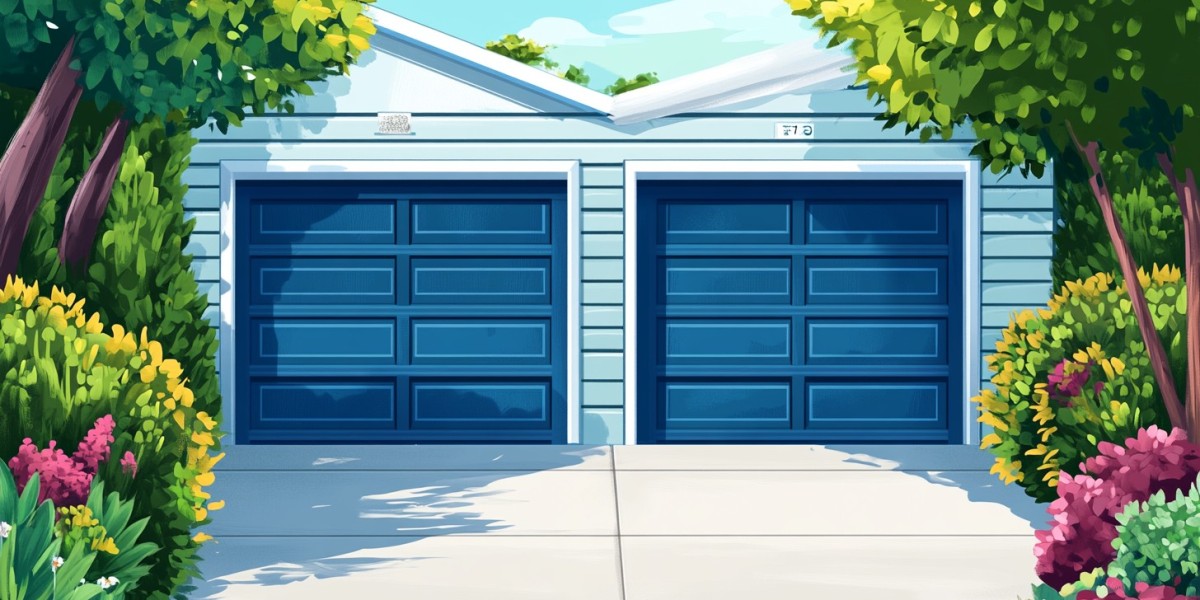A garage door is one of the most frequently used parts of a home, and when it stops working properly, it can cause a lot of inconvenience. Whether it’s stuck, making strange noises, or simply won’t close, knowing how to handle garage doors repair can save you time and money. In this guide, we’ll cover the most common problems, DIY fixes, and when to call a professional.
Common Garage Door Problems
Garage doors can experience a variety of issues, but some are more common than others. Here are the most frequent problems homeowners face:
- Garage door won’t open or close. This could be due to sensor misalignment, a broken opener, or a power issue.
- Loud noises during operation. Squeaking, grinding, or banging noises might indicate loose hardware, worn-out rollers, or lack of lubrication.
- Door moves unevenly or gets stuck. This may be caused by track misalignment, dirt buildup, or broken springs.
- Remote control isn’t working. Check the batteries, signal range, or reprogram the remote.
- Garage door opens halfway and stops. The problem may be with the tension springs or an issue in the motor.
DIY Garage Doors Repair Tips
While some garage door repairs require professional help, there are several minor issues you can fix yourself. Here are a few simple maintenance tips:
- Check the power supply – Ensure the opener is plugged in and receiving power.
- Lubricate moving parts – Apply a silicone-based lubricant to the tracks, rollers, and hinges to reduce friction.
- Tighten loose hardware – Use a wrench to secure bolts and brackets that may have loosened over time.
- Clean the tracks – Dirt and debris can cause the door to stick; use a damp cloth to wipe the tracks clean.
- Test the sensors – Make sure the sensors are aligned and free from dust or obstructions.
When to Call a Professional
Not all garage door problems can be solved with DIY fixes. In some cases, calling a professional is the safest and most efficient solution. Here’s when you should seek expert help:
- Broken springs or cables – These are under high tension and can be dangerous to repair yourself.
- Motor or opener failure – If the motor is malfunctioning, a technician can diagnose and fix the issue.
- Severe track misalignment – If the door has come off its track, a professional can safely realign it.
- Dented or damaged panels – Repairing or replacing panels requires specialized tools and expertise.
How to Choose a Reliable Garage Door Repair Service
If you need professional help, it’s important to choose the right service provider. Consider these factors:
- Experience and reputation – Look for a company with positive reviews and years of experience.
- Licensed and insured technicians – This ensures that you’re protected in case of any accidents.
- Transparent pricing – Get a written estimate before approving any repairs.
- Warranty on services – A reputable provider will offer warranties on both parts and labor.
Preventative Maintenance Tips
To avoid costly repairs in the future, regular maintenance is key. Follow these steps to keep your garage door in top shape:
- Inspect the door regularly – Look for any signs of wear and tear, such as frayed cables or worn-out rollers.
- Lubricate moving parts – Apply lubricant every six months to prevent rust and ensure smooth operation.
- Test the balance – Disconnect the opener and manually lift the door. If it doesn’t stay in place, the springs may need adjustment.
- Check the weather seal – A worn-out seal can let in dust, debris, and moisture.
Regular maintenance and prompt repairs can keep your garage door functioning smoothly and safely. Whether you’re handling a minor fix yourself or hiring a professional, understanding the basics of garage doors repair can help you make informed decisions. If your garage door isn’t working properly, don’t ignore the problem—take action today and keep your home secure and convenient!



